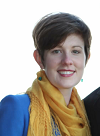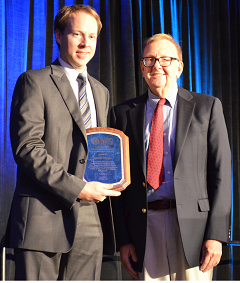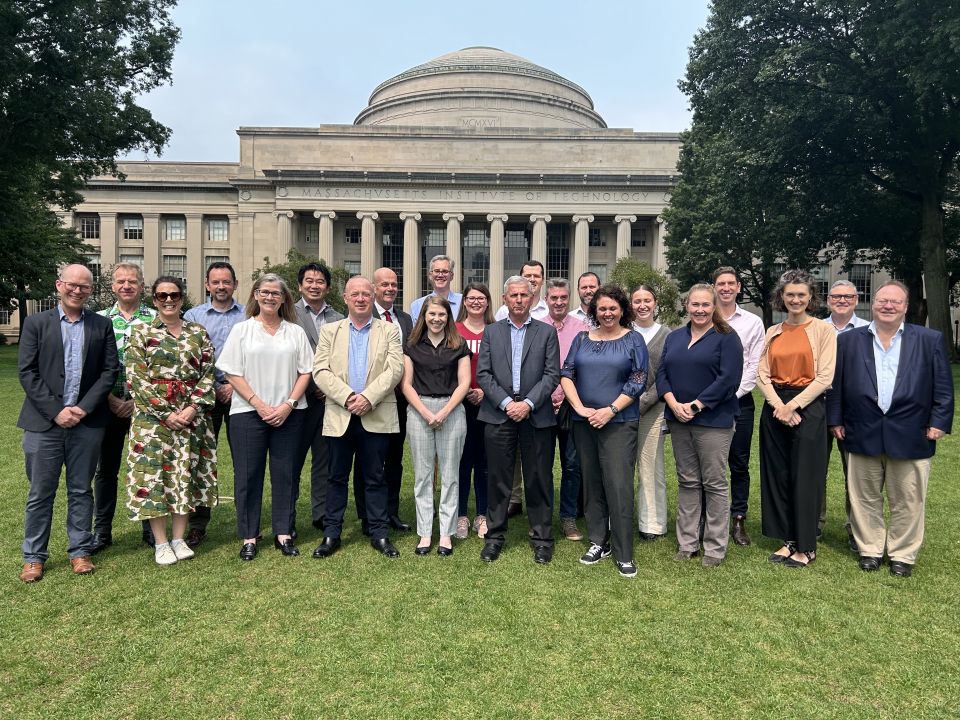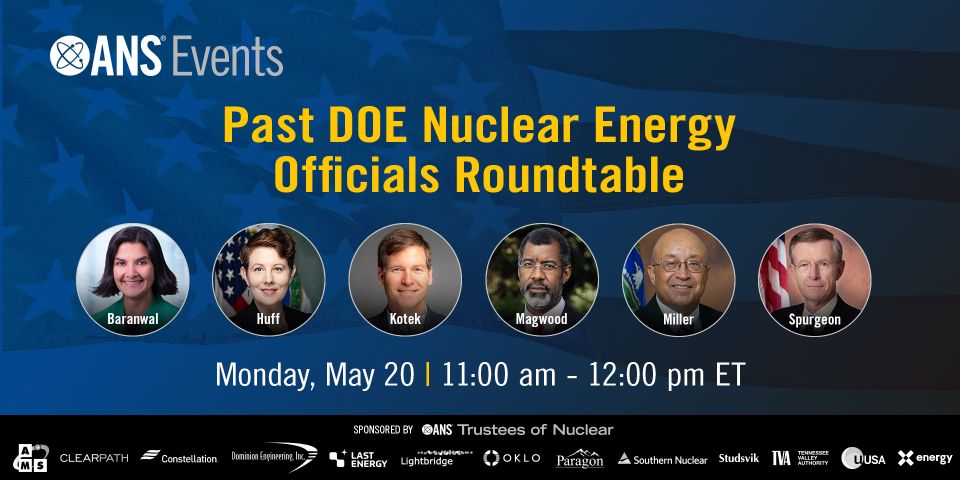Interview With ANS Landis Award Recipient Dr. Benoit Forget
 Benoit Forget, associate professor of nuclear science and engineering at the Massachusetts Institute of Technology, was honored with the 2013 ANS Landis Young Member Engineering Achievement Award. The award recognizes outstanding achievement for effectively applying engineering knowledge to yield a new principle, concept, design, safety improvement, method of analysis, or product used in the nuclear energy enterprise.
Benoit Forget, associate professor of nuclear science and engineering at the Massachusetts Institute of Technology, was honored with the 2013 ANS Landis Young Member Engineering Achievement Award. The award recognizes outstanding achievement for effectively applying engineering knowledge to yield a new principle, concept, design, safety improvement, method of analysis, or product used in the nuclear energy enterprise.
Professor Forget, the 2011-2012 chair of the ANS Reactor Physics Division, pursues a suite of research topics related to computational methods in reactor physics and advanced reactor design. The following interview with Professor Forget offers an inspiring introduction to this distinguished Young Member.
ANS Nuclear Cafe: The award reads, in part, "...for revitalizing the MIT Department of Nuclear Science & Engineering." Can you tell me how you contributed to this revitalization?
Professor Forget: There are a couple of different factors that played toward this. The age distribution of the Department of Nuclear Science and Engineering at MIT was quite skewed, like most other entities in the nuclear industry, and there had been a lack of reactor physics research since Professor Al Henry had passed away in 2001. When I joined the department in 2008, I was essentially at the right place at the right time. The department needed to revitalize, but I certainly can't take all the credit since this was a concerted effort by all of my colleagues; I was just fortunate enough to be one of the first few new hires to play a role toward this.
ANS Nuclear Cafe: To you, what is the importance of your research? That is, what happens when we have better reactor physics software and, in particular, the "...efficient, scalable Monte Carlo reactor physics analysis tools..." for which you were awarded this honor?
Professor Forget: The main focus of the Computational Reactor Physics group at MIT that Professor Kord Smith and I are leading is the development of "reactor agnostic" methods for efficient high-fidelity simulations. Our goal is to develop tools and methods that eliminate reactor-specific corrections or large conservatism for the better understanding of safety considerations and more economical designs. As part of this work, one of my recent graduates, Paul Romano, undertook the task to develop OpenMC, an open-source Monte Carlo neutron transport code, which addresses some of the pitfalls of Monte Carlo methods on leadership-class computers for full reactor core simulations. Paul is just one example of how fortunate our group has been at getting incredible students.
ANS Nuclear Cafe: Recognition as a Landis award winner makes you very visible to young nuclear engineering students and professionals looking for role models. Do you have any words of advice or wisdom for these young members of the nuclear community?
Professor Forget: The nuclear industry has a skewed age distribution that sometimes makes communication between generations difficult. Too often we encounter people who believe that everything has been solved and refuse to consider new ideas, or revisit old ones. I find it important to identify good mentors who understand the legacy of nuclear power but still have an eye toward the future. These are the people who will help you thrive in your research career and push the frontiers of nuclear power.
_____________________
 Katy Huff is a Nuclear Science Security Consortium postdoctoral scholar at the University of California-Berkeley, where she conducts computational analyses of advanced nuclear technologies and systems. She holds a Ph.D. in nuclear engineering at the University of Wisconsin-Madison, where her research emphasized computational fuel cycle systems analysis and repository technology simulation.
Katy Huff is a Nuclear Science Security Consortium postdoctoral scholar at the University of California-Berkeley, where she conducts computational analyses of advanced nuclear technologies and systems. She holds a Ph.D. in nuclear engineering at the University of Wisconsin-Madison, where her research emphasized computational fuel cycle systems analysis and repository technology simulation.




